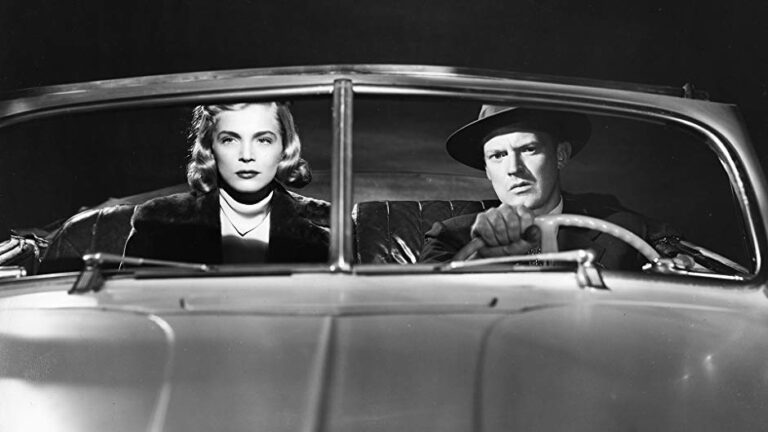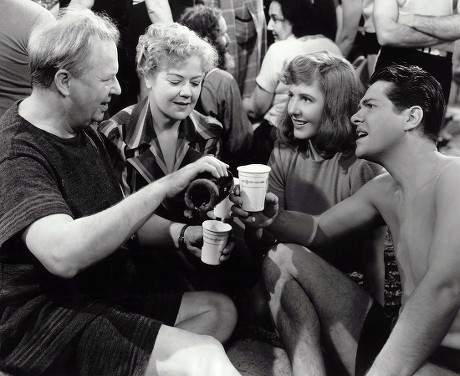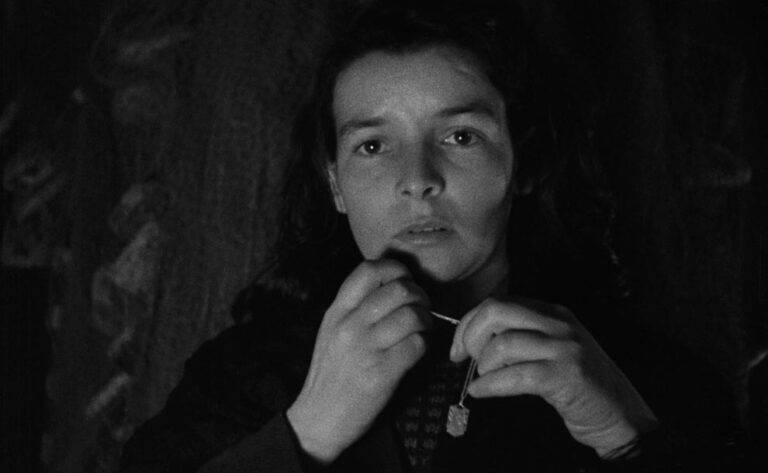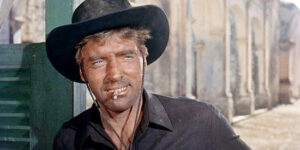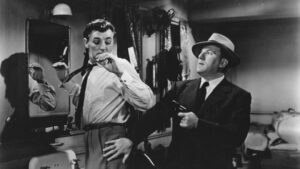Directed by Robert Siodmak
Written by Daniel Fuchs
Starring:
- Burt Lancaster as Steve Thompson
- Yvonne De Carlo as Anna
- Dan Duryea as Slim Dundee
- Stephen McNally as Det. Lt. Pete Ramirez
- Esy Morales as Orchestra Leader
- Tom Pedi as Vincent
- Percy Helton as Frank
Rating: ![]()
The quintessential noir philosophy “I didn’t get the money, and I didn’t get the woman” immortalized by the dour fatalistic prose of Billy Wilder’s Double Indemnity, is now incarnated by Burt Lancaster, playing Steve Thompson, a guy bamboozled by the demagoguery of the daydreams of infatuation.
Through a lucid, explanatory analepsis, Robert Siodmak’s malevolent noir recounts the melodramatic events that lead hopeful Steve to become involved in a grand, tragic robbery. In a deluded attempt, Steve returns to Los Angeles to win back the love of Anna (Yvonne De Carlo), his ex-wife, who is now married to the city’s big bad boy, Slim Dundee (Dan Duryea). However, Steve ignores any kind of menace Slim hurls at him and decides to pursue Anna surreptitiously, thus igniting a vicious and treacherous amorous dynamic. As the hostility of the love triangle inflames the hubris of the male adversaries, Yvonne De Carlo’s devious character tricks and connives with her tacit sensitivity and murderous greed to get her way at the expense of poor Steve’s credulity.
Siodmak is very astute at distinguishing good intentions from villainous intentions in this dastardly love triangle, but beware, that’s just a clever trick to exonerate Burt Lancaster’s Steve from blame; first we root for him, then we root for Steve and Anna’s illicit relationship, and finally we root for no one. To go from optimism to pessimism requires only an abrupt change of perspective, but Siodmak’s direction never anticipates, it throws it straight in your face with relentlessly mean-spirited gusto when you least expect it. Perhaps the story needlessly overcomplicates its pulp narrative structure for the sake of showiness; clearly, it’s more of a thriller operating as melodrama than vice versa. Which to my mind would have worked infinitely better the other way around, it should have been a melodrama operating as a thriller. Or maybe I’m simply incapable of perceiving anything substantial in its narrative methodology, or maybe I just envy the tremendous efficiency of this little B-movie to systematically demolish all kinds of jubilant and buoyant emotions with so little. That said, Robert Siodmak’s Criss Cross is a faulty mini masterpiece of post-war pessimism. But it’s still a masterpiece.
Shot in an itinerant and sparkling downtown Los Angeles – sublimely captured by Viennese cinematographer Franz Planer – sordid urbanism that even in its uplifting climate, the acrid textures of the monochrome imagery rendered in this picture inspire only nihilism and existential emptiness. It is a noir of exquisite mood transitions, all of them totally unexpected, you just wait until you witness its despondent ending – one of the bleakest final shots in all of American noirs.

